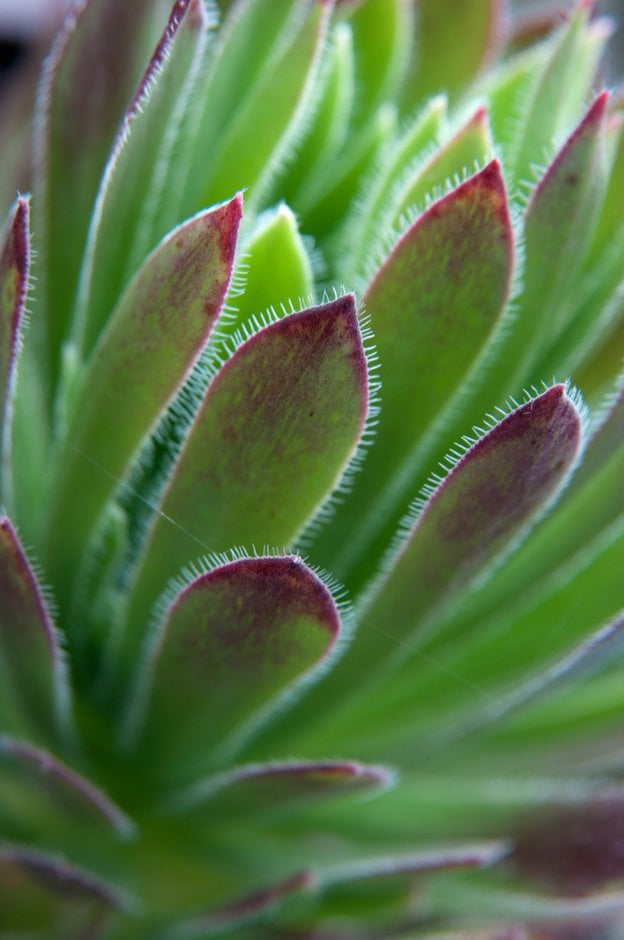Aeonium simsii
Sims aeonium
A low-growing, branching, evergreen succulent to 20cm tall forming dense cushions of small rosettes. Each rosette has strap-shaped, fleshy green leaves with pointed tips and margins edged with translucent hairs; leaves may become tinged with red in bright light. In spring, flat-topped clusters of small, yellow flowers are borne on red stems above the rosettes
Size
Ultimate height
0.1–0.5 metresTime to ultimate height
2–5 yearsUltimate spread
0.1–0.5 metresGrowing conditions
Moisture
Well–drainedpH
Acid, Alkaline, NeutralColour & scent
| Stem | Flower | Foliage | Fruit | |
| Spring | Red | Yellow | Green Red | |
|---|---|---|---|---|
| Summer | Green Red | |||
| Autumn | Green Red | |||
| Winter | Green |
Position
- Full sun
Aspect
South–facing or West–facing or East–facing
Exposure
ShelteredDrought resistance
Yes Hardiness
H1CBotanical details
- Family
- Crassulaceae
- Native to GB / Ireland
- No
- Foliage
- Evergreen
- Habit
- Bushy
- Genus
Aeonium are evergreen succulents often of shrubby habit, with fleshy leaves in terminal rosettes on the shoots, and racemes or panicles of small, star-shaped flowers with numerous narrow petals
- Name status
Correct
- Plant range
- Canary Islands
How to grow
Cultivation
Grow in pots of peat-free, loam-based compost with added extra grit. Position in a sunny spot for the best leaf colouration; aeonium will tolerate some shade but the leaves become green. Water moderately when in growth, not at all when dormant. Apply a balanced liquid fertiliser 2 or 3 times during the growing season. In winter move plants to a frost-free greenhouse or conservatory. See hardy cacti and succulent cultivation for further information
Propagation
Propagate by seed or take rosette stem-tip softwood cuttings in early summer; wait until calluses have formed, then insert in sandy compost and in moderate light at 18°C, and keep just moist until rooted
Suggested planting locations and garden types
- City and courtyard gardens
- Patio and container plants
- Mediterranean climate plants
Pruning
No pruning required
Pests
Diseases
Generally disease-free
Get involved
The RHS is the UK’s gardening charity, helping people and plants to grow - nurturing a healthier, happier world, one person and one plant at a time.
